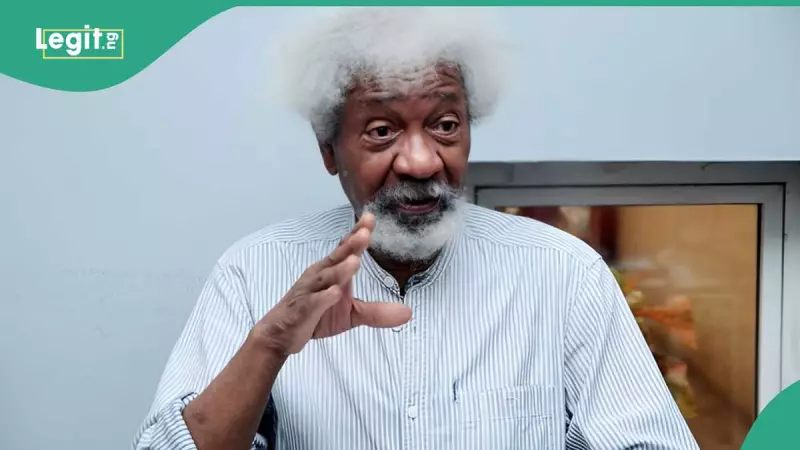
In a stunning revelation that has captured international attention, Nigeria's Nobel laureate Professor Wole Soyinka has disclosed that he deliberately destroyed his United States Green Card following Donald Trump's unexpected victory in the 2016 presidential election.
The renowned playwright and political activist made this dramatic confession during a recent interview, explaining that his decision was a direct response to Trump's electoral triumph and the political direction it represented for America.
The Moment of Decision
Soyinka described the immediate aftermath of the 2016 election results as a pivotal moment that prompted his radical action. "When Trump was elected, that was the moment I said, 'I'm out of here,'" the literary giant revealed. His destruction of the coveted residency permit symbolized a complete break with a nation whose political choices he could no longer endorse.
A History of Political Protest
This isn't the first time Professor Soyinka has taken dramatic political stands. Throughout his distinguished career, the Nobel Prize winner has consistently used his platform to challenge authoritarian regimes and defend democratic principles.
His destruction of the Green Card follows in the tradition of his lifelong commitment to political activism, which includes imprisonment during Nigeria's civil war and ongoing criticism of corrupt governance across Africa.
What is a Green Card?
For context, a United States Green Card represents:
- Permanent residency status in the United States
- The right to live and work anywhere in the country
- A pathway to eventual US citizenship
- A document millions worldwide spend years trying to obtain
Soyinka's deliberate destruction of this valuable document underscores the depth of his political convictions and his willingness to sacrifice personal privilege for principle.
International Reactions
The revelation has sparked widespread discussion across social media platforms and international news outlets. Many have praised Soyinka's commitment to his beliefs, while others have questioned the practicality of such a symbolic gesture.
What remains undeniable is the powerful statement made by one of Africa's most respected intellectual figures, whose actions continue to inspire debates about political responsibility and moral courage in turbulent times.





